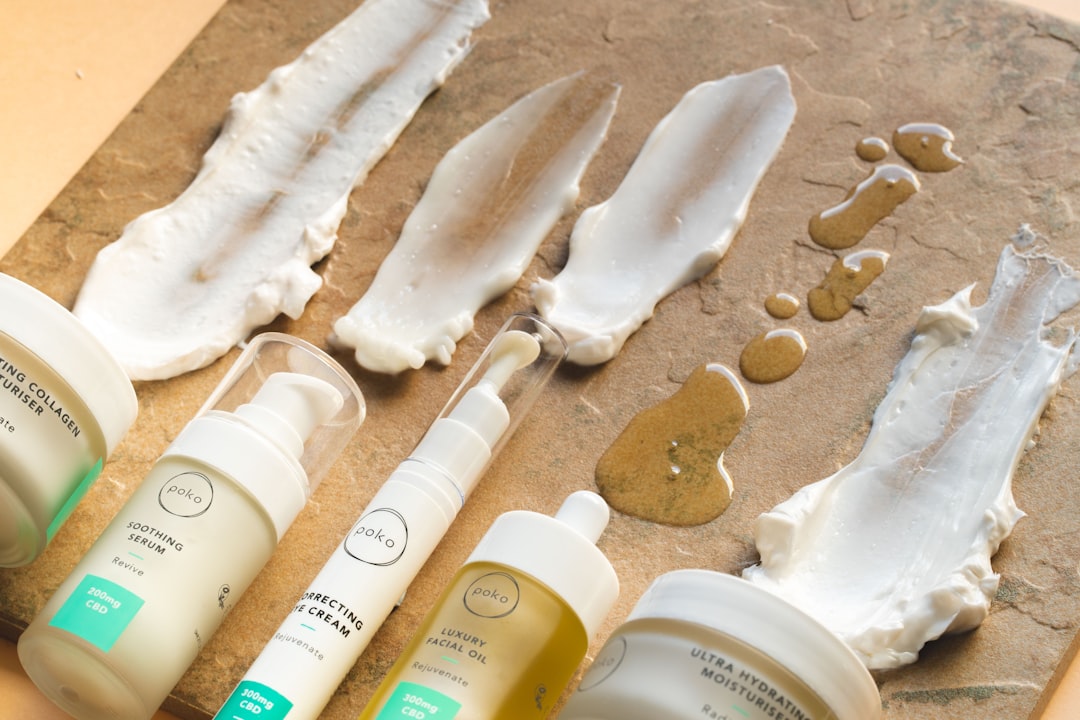Understanding your skin type is crucial when it comes to establishing an effective skincare routine. There are generally four main skin types: normal, dry, oily, and combination. Normal skin is well-balanced, with small pores and few imperfections. Dry skin often feels tight and may appear flaky or rough. Oily skin is characterized by enlarged pores, a shiny complexion, and a tendency to develop acne. Combination skin typically has an oily T-zone (forehead, nose, and chin) and drier cheeks. Identifying your skin type will help you choose the right products and treatments that cater to your specific needs.
It’s important to note that your skin type can change over time due to various factors such as age, hormonal fluctuations, climate, and lifestyle. Therefore, it’s essential to regularly reassess your skin type and adjust your skincare routine accordingly. Using products that are not suitable for your current skin type can lead to issues such as dryness, irritation, or breakouts. By understanding your skin type and its unique characteristics, you can make informed decisions about the products and treatments that will best support your skin’s health and appearance.
Summary
- Understanding your skin type is crucial for choosing the right skincare products and routine
- Signs that your skincare routine needs a change include increased breakouts, dryness, or irritation
- The frequency of changing your skincare routine depends on your skin type and any changes in your skin’s needs
- Factors such as age, hormonal changes, and environmental factors can affect how often you need to change your skincare routine
- Adjust your skincare routine for seasonal changes by using lighter products in summer and more hydrating products in winter
- Consulting a skincare professional can provide personalised guidance for your specific skin concerns
- Tips for maintaining a healthy skincare routine include staying hydrated, protecting your skin from the sun, and being consistent with your routine
Signs that your skincare routine needs a change
There are several signs that indicate it may be time to change your skincare routine. If you notice that your current products are no longer delivering the desired results, it may be a sign that your skin has changed and requires different care. For example, if you have been using a moisturizer for dry skin but find that it’s not providing enough hydration, it may be time to switch to a richer formula or incorporate additional hydrating products into your routine. Similarly, if you have been using products for oily skin but notice that your skin has become drier over time, it may be necessary to adjust your routine to address the new needs of your skin.
Another sign that your skincare routine needs a change is if you experience increased sensitivity, redness, or irritation. This could indicate that the products you are using are too harsh for your skin or that you may have developed a sensitivity to certain ingredients. In such cases, it’s important to reassess your skincare routine and opt for gentler, more soothing products. Additionally, if you notice an increase in breakouts or congestion, it may be a sign that your current routine is not effectively addressing your skin’s needs. Adjusting your skincare routine in response to these signs will help maintain the health and balance of your skin.
Frequency of changing your skincare routine
The frequency of changing your skincare routine can vary depending on several factors, including changes in your skin type, lifestyle, environment, and age. As a general rule of thumb, it’s recommended to reassess your skincare routine at least twice a year, ideally with the change of seasons. This allows you to adapt your routine to the different environmental conditions and potential changes in your skin’s needs. However, if you notice significant changes in your skin at any point during the year, it’s important to adjust your routine accordingly.
In addition to seasonal changes, major life events such as pregnancy, menopause, or starting a new medication can also impact your skin and necessitate a change in your skincare routine. Hormonal fluctuations during these times can lead to changes in skin type or specific concerns that require different products and treatments. It’s important to pay attention to these changes and seek professional advice if needed to ensure that you are providing the best care for your skin.
Factors that can affect the frequency of changing your skincare routine
Several factors can affect the frequency of changing your skincare routine. One of the most significant factors is changes in your skin type. As mentioned earlier, factors such as age, hormonal fluctuations, climate, and lifestyle can all contribute to changes in your skin type. For example, as you age, your skin may become drier and more sensitive, requiring adjustments to your skincare routine. Similarly, moving to a different climate or experiencing changes in stress levels can impact the oil production and overall condition of your skin.
Another factor that can affect the frequency of changing your skincare routine is the introduction of new skincare concerns or goals. For instance, if you develop hyperpigmentation or fine lines, you may need to incorporate specific treatments or ingredients into your routine to address these concerns. On the other hand, if you successfully address certain skincare issues and no longer need specific products or treatments, you may need to adjust your routine accordingly.
Furthermore, advancements in skincare technology and research can also influence the frequency of changing your skincare routine. New ingredients, formulations, and treatments may become available that offer improved benefits for your skin. Staying informed about these developments can help you make informed decisions about updating your skincare routine.
Adjusting your skincare routine for seasonal changes
Seasonal changes can have a significant impact on the condition of your skin, making it important to adjust your skincare routine accordingly. During the colder months, the air tends to be drier, which can lead to increased dryness and sensitivity in the skin. To combat this, it’s beneficial to incorporate richer moisturizers and hydrating serums into your routine. Additionally, using gentle exfoliants can help remove dry, flaky skin and promote a smoother complexion.
In contrast, warmer months often bring higher humidity levels and increased oil production in the skin. This can lead to congestion and breakouts for those with oily or combination skin types. Adjusting your skincare routine during this time may involve using lighter moisturizers, oil-controlling products, and incorporating more frequent exfoliation to prevent clogged pores.
It’s also important to consider the impact of sun exposure during the summer months and adjust your skincare routine accordingly. Using a broad-spectrum sunscreen with a high SPF is essential to protect the skin from harmful UV rays and prevent premature aging. Additionally, incorporating antioxidant-rich products can help combat free radical damage caused by sun exposure.
Consulting a skincare professional for guidance
Consulting a skincare professional can provide valuable guidance when it comes to establishing or adjusting your skincare routine. A dermatologist or licensed esthetician can assess your skin type and specific concerns to recommend suitable products and treatments. They can also provide insight into any underlying skin conditions that may require professional intervention.
Furthermore, skincare professionals can offer personalised advice based on their expertise and knowledge of the latest skincare trends and advancements. They can recommend specific ingredients or formulations that are best suited for your skin type and concerns. Additionally, they can provide guidance on the proper use of products and treatments to ensure optimal results without causing harm to the skin.
In some cases, seeking professional guidance may be necessary if you experience persistent or severe skin issues that do not improve with over-the-counter products. A skincare professional can conduct a thorough assessment of your skin and recommend targeted treatments or procedures to address these concerns effectively.
Tips for maintaining a healthy skincare routine
Maintaining a healthy skincare routine involves more than just using the right products; it also requires consistency and good habits. Here are some tips for maintaining a healthy skincare routine:
1. Cleanse regularly: Cleansing is essential for removing dirt, oil, and impurities from the skin. It’s important to cleanse twice daily, in the morning and evening, using a gentle cleanser suitable for your skin type.
2. Moisturize consistently: Regardless of your skin type, moisturizing is crucial for maintaining hydration and protecting the skin’s barrier function. Choose a moisturizer that suits your specific needs and apply it regularly after cleansing.
3. Use sunscreen daily: Sunscreen is one of the most effective anti-aging products available. Apply a broad-spectrum sunscreen with at least SPF 30 every morning, even on cloudy days.
4. Exfoliate appropriately: Exfoliation helps remove dead skin cells and promote cell turnover for a brighter complexion. However, it’s important not to over-exfoliate, as this can lead to irritation and sensitivity.
5. Stay hydrated: Drinking an adequate amount of water is essential for maintaining healthy skin from within. Aim to drink at least 8 glasses of water per day to keep your skin hydrated.
6. Eat a balanced diet: Consuming a diet rich in fruits, vegetables, lean proteins, and healthy fats can provide essential nutrients for healthy skin.
7. Get enough sleep: Quality sleep is crucial for overall health and plays a significant role in maintaining healthy-looking skin.
By following these tips and being mindful of changes in your skin’s needs, you can maintain a healthy skincare routine that supports the long-term health and appearance of your skin.
Discover the benefits of incorporating vitamin C into your skincare routine with our insightful article on The Benefits of Vitamin C for Your Skin. Understanding your skin type is crucial for personalized skincare, and our comprehensive guide on Understanding Your Skin Type: A Guide to Personalized Skincare provides valuable insights. Additionally, learn to identify beneficial and harmful ingredients in skincare masks by reading our article on The Truth Behind the Label: Identifying Beneficial and Harmful Ingredients in Skincare Masks. Stay informed and make the most of your skincare routine!
FAQs
What is a skincare routine?
A skincare routine is a series of steps and products used to take care of the skin, typically including cleansing, exfoliating, moisturizing, and applying sunscreen.
How often should I change my skincare routine?
It is generally recommended to stick to a skincare routine for at least 4-6 weeks to allow the skin to adjust to the new products. However, if you notice any adverse reactions or changes in your skin, it may be necessary to change your routine sooner.
What factors can influence how often I should change my skincare routine?
Factors such as changes in climate, hormonal fluctuations, aging, and skin conditions can all impact the effectiveness of your current skincare routine and may necessitate a change in products or frequency of use.
What are signs that I should change my skincare routine?
Signs that indicate a need to change your skincare routine include persistent breakouts, increased dryness or oiliness, redness, irritation, or a lack of improvement in skin concerns despite consistent use of products.
How can I determine if a product is not working for my skin?
If a product is not working for your skin, you may experience adverse reactions such as redness, itching, burning, increased breakouts, or a lack of improvement in your skin’s condition over time.
Should I consult a dermatologist before changing my skincare routine?
If you are unsure about whether to change your skincare routine or which products to use, it is advisable to consult a dermatologist. They can provide personalized recommendations based on your skin type and concerns.




